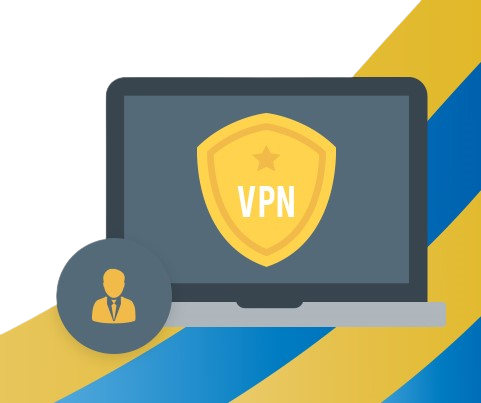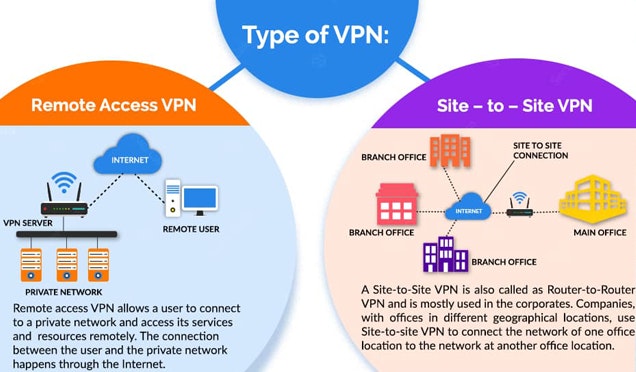 Introduction
Introduction
In today’s digital age, where online privacy and security are of utmost importance, VPN connections have become an essential tool for internet users.
Whether you’re browsing the web or working remotely, a reliable VPN connection can safeguard your sensitive data from prying eyes. However, how do you ensure that your VPN is functioning correctly?
In this blog post on testing VPN connections, we’ll explore various techniques and tools to verify the authenticity and performance of your VPN service. Keep reading to learn more!
What is a VPN Connection?
A VPN connection is a secure and encrypted tunnel between your device (computer, phone, or tablet) and the internet. It allows you to send and receive data over public networks as if you were connected to a private network.
When you connect to a VPN server, your device’s IP address is replaced with one from the VPN server location. This makes it difficult for anyone to track your online activity or determine your physical location.
There are two types of VPN connections: remote access and site-to-site. Remote access is used by individuals to access their personal files or work resources from anywhere in the world. Site-to-site connects entire networks together, allowing different offices or locations of an organization to communicate securely with each other.
VPNs have become increasingly popular due to growing concerns about online privacy and security. They can also help bypass geo-restrictions on content, giving users more freedom when browsing the web.
Understanding what a VPN connection is can help you make informed decisions about using one for yourself or your business needs.
Types of VPN Connections

via Scalingo
There are several types of VPN connections, each with its own set of advantages and disadvantages. The most common types are remote-access VPNs and site-to-site VPNs.
Remote access VPNs allow individual users to connect to a private network securely over the internet. This is useful for employees who work from home or need to access company resources while on the go. Remote access VPNs can be configured using either client-based software or browser-based solutions.
Site-to-site VPNs, on the other hand, enable multiple networks in different locations to communicate with one another as if they were all part of the same local network. This is particularly useful for businesses that have multiple branches or offices in different cities or countries.
Another type of VPN connection is SSL/TLS VPN, which uses Secure Sockets Layer (SSL) or Transport Layer Security (TLS) protocols to establish a secure connection between two endpoints without requiring any additional software installation.
Choosing the right type of VPN connection depends on your specific needs and requirements. It’s important to evaluate each option carefully before making a decision.
Safest VPN in 2023
HideIPVPN offers a VPN service with military-grade encryption, and high-speed servers with unlimited bandwidth.
Our service comes with shared IP addresses so that your activity can never be tied to one particular user, further protecting your privacy.

We also offer DNS leak protection, a Kill Switch, the latest VPN protocols, and a guaranteed no-log policy.
Best VPN Deal! Get HideIPVPN for $2.7/mo!
Every purchase you make comes with a 30-day money-back guarantee.
How to Test a VPN Connection?
To ensure that your VPN is working properly, you need to test your connection. Here are some ways to do it:
1. Firstly, check the IP address of your device before and after connecting to the VPN. If there is a change in IP address, then your VPN is working.
2. Secondly, use an online tool such as DNS leak test or IP leak test to verify if any data packets are leaking from your device.
3. Thirdly, try accessing geo-restricted content using a location-specific website or streaming service while connected to the VPN. If you can access it without any issues, then your connection is secure.
4. Fourthly, check for internet speed and latency by conducting speed tests while connected to the VPN. A drop in speed compared to when not using a VPN is normal but should not be too significant.
Restart all devices and routers used for the connection as this can sometimes fix connectivity issues.
By following these steps regularly, you can ensure that your VPN connection remains strong and secure.
Tools for Testing VPN Connections
When it comes to testing VPN connections, there are a few tools that can come in handy. These tools allow you to test the speed and reliability of your VPN connection, as well as ensure that your connection is secure.
One such tool is speedtest.net. This website allows you to check the download and upload speed of your internet connection while connected to a VPN server. By doing so, you can determine if your VPN provider is delivering on its promised speeds.
Another useful tool for testing VPN connections is IPLeak.net. This website checks if your IP address and DNS requests are being leaked while using a VPN connection. If any leaks are detected, this could indicate a security vulnerability in your system.
For those who want more comprehensive testing, Wireshark is an open-source network protocol analyzer that can be used to analyze network traffic while connected to a VPN server. However, it may require some technical expertise to use effectively.
By utilizing these tools, you can ensure that your VPN connection meets both performance and security standards.
Conclusion
To sum up, testing your VPN connection is essential to ensure that it is working efficiently and securely. By following the steps outlined in this article, you can easily test your VPN connection with various tools available online.
Remember to check the speed of your internet connection before connecting to a VPN and choose a reliable service provider for maximum security. Testing your VPN regularly will help you identify any issues early on so that they can be resolved quickly.
In today’s digital age, where privacy breaches have become commonplace, using a VPN has become more important than ever before. With the right tools and knowledge at hand, anyone can test their VPN connections with ease and enjoy secure browsing without worry.



